9 Brain Habits You Didn’t Realize You Had…
Brain is certainly the most amazing part of human body. It becomes more interesting when it does not work the way you expect it should. Psychology frequently establishes our intuitions about how human mind works, but it reveals a number of surprises as well…
Although some psychology students will have heard one or two of these before, here’s a list of brain habits you probably didn’t realize you had:
1) The maximum capacity of your short-term memory is seven.
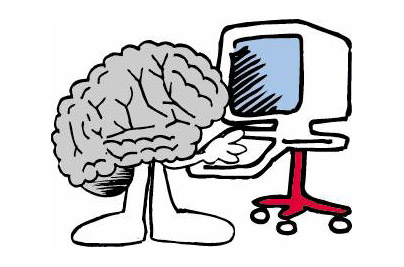
Humans have basically three forms of memory: Sensory, Long-term and Short-term. Long-term memory is just like hard-drive space. Similarly, Short-term memory functions like a very small RAM. This Short-term memory is capable to hold only about five to nine (seven is an average) items at a time.
Retrieving information longer than this will need you to either pack it together into seven units or store it in Long-term memory. Have you observed that the most phone numbers have only seven digits?
2) The most visible color is Chartreuse.

Yellowish green, chartreuse, is naturally placed right in the middle of the frequencies of visible light. Human eyes have receptors for green, blue and red colors. Being placed in the middle, chartreuse actuates the most of these receptors to fire, making it distinct and easier to spot. For the same reason, in some metropolises, firetrucks have been modified from red to a yellowish green color to make them more visible and obvious to the eye.
3) Subconscious is smarter than you.
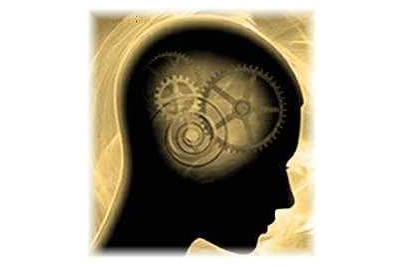
Subconscious is smarter than you. In other words, it is more powerful. In a recent study, a square was attributed to a location on a computer screen through a complex pattern. After watching it out, people began to get results better than the chance of recognizing where the square would crop up next. However, when they were inquired to consciously find out the pattern, even given a few hours, nobody really did it!
4) There are two nervous systems.
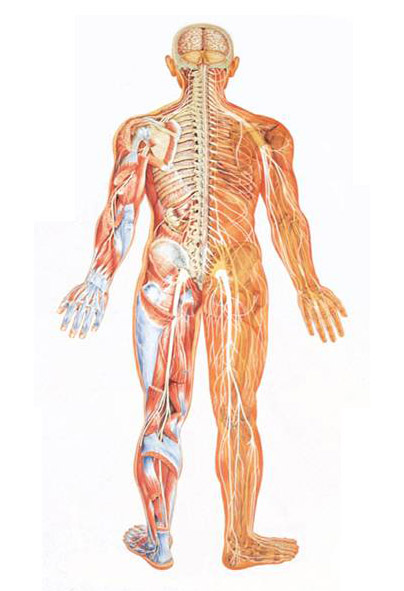
We have two sets of nervous systems. One controls excitation, while the other controls inhibition. If you hold out your hand, you might observe minor tremors. This is actually stimulated by slight, random differences in the amount each of the two systems are firing.
5) Brain is exceptionally bad at probability.
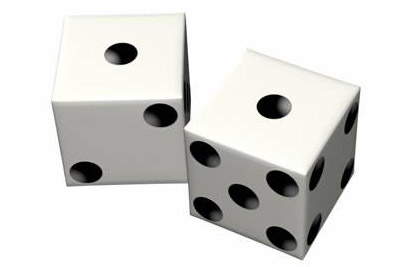
Your high-school math teacher might have told you about this one. Here what’s interesting isn’t that your brain is bad at probability. But how? In one study, recipients were asked:
Jessica is 31 years old, single, candid, and very promising. She graduated in philosophy. As a student, she was anxious about discrimination issues and social justice, and also took part in anti-nuclear demonstrations.
Assign a rank to the following statements from most probable to least probable: Jessica is a teacher in an elementary school.
- Jessica works in a bookstore and takes Yoga classes.
- Jessica is active in the feminist movement.
- Jessica is a psychiatric social worker.
- Jessica is a member of the League of Women Voters.
- Jessica is a bank teller.
- Jessica is an insurance salesperson.
- Jessica is a bank teller and is active in the feminist movement.
Nearly 90% of students responded that #7 was more probable than #5. This is despite the fact that to be a bank teller and in the feminist movement is entirely contained within the set of #5 (just being a bank teller). It is observable that our minds like to think more details make events more probable, not less.
6) Memory isn’t great either.

Research has revealed that people are highly probable to misremember past events. Even worse, it is quite easy to suggest a memory that never happened. Due to this fact, so-called “repressed” memories should be given a lot of consideration. It is extremely easier to suggest a memory of a situation that never encountered, than it is to recover one that actually did.
7) Depth is perceivable with one eye.
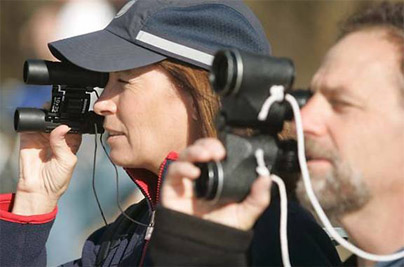
It’s not quite true that depth perception is totally the result of having two eyes. Binocular vision does help in making a three-dimensional image. Still, most of your capability to perceive depth comes from inside your brain. It has been wired to look at angles and proportions to measure distance.
If you needed two eyes to perceive depth, then most optical illusions wouldn’t work and it would be extremely difficult to gather information from two-dimensional images. Not to mention a great number of one-eyed pirates walking overboard.
8 ) Long-term memory closes up during sleep.

The components of the brain that carry information to Long-term memory turn off while sleeping. For the same reason, dreams quickly fade out after you wake up. Although you may have quite a few dreams in a night, they aren’t being memorialized into Long-term memory. Normally only the fragments of a dream left in Short-term memory have a possibility to be converted after you wake up.
9) The Brain has an amazing instant playback feature.

The last form of memory, i.e. Sensory memory is actually your brain’s equivalent to an instant playback feature. Functioning for both your vision and hearing, your thalamus can resend signals a few seconds after they were originally sent.
Let’s suppose being at a party and overhearing someone call your name. Often you can recall what they said even if you were concentrating on another conversation. This is because your sensory memory re-sends the signals when it feels something important, such as your name. If you missed this form of memory, activities such as multitasking or taking notes from a speaker would not be practicable for you.
If you’re supposed to repeat something you just said because the other person wasn’t hearing, just wait for a few seconds. Often they can replay the message in their head and cause to a reaction.
















January 14th, 2009 at 7:48 pm
Great article, I always wondered why I’ve never been able to really remember any dreams I have, only pick out certain fragments – but if you woke up in the middle of a dream, wouldn’t that mean your short term memory, which still has the dream fresh, should then move it to you’re long term section?
January 16th, 2009 at 2:31 pm
nice
January 17th, 2009 at 5:47 am
Hey,
Don’t overthink these examples. I see some great responses here in rebuttal but the point of this website is still good.
We’re all talking about it, and thinking. Great stuff!
January 18th, 2009 at 8:48 am
haha…oh my sasha…have you taken any psych/bio courses?? might want to check that list and rethink some of those comments…
January 20th, 2009 at 2:15 am
I love figuring out how we work
January 21st, 2009 at 5:59 am
Number 3 has to be my favorite!
Great blog! I’m looking forward to more wonderful posts!
January 23rd, 2009 at 3:42 am
Excellent article. thanks 4 sharing
January 23rd, 2009 at 9:04 am
A lot of these aren’t even brain habits. Bad title.
February 1st, 2009 at 9:52 pm
dreams are just your brain defragging, moving random bits of info into groups (stories) for efficient storage
just prior to death the experience of your ‘whole life flashing before your eyes’ is your brain preparing to upload all your info onto the ‘big database’ by moving it all to the frontal ‘temporary’ files
you can continue to exist after death as a ‘data set’ for as long as you need to reconcile your life
this can take a long time or be quite quick, it can be a ‘heaven’ or ‘hell’ like experience
your ‘beliefs’ will shape this experience
February 4th, 2009 at 2:50 am
As a designer, I use my subconscious constantly. (regarding #3) I find that I am better able to solve problems on days where I have completed a successful design.
February 7th, 2009 at 8:19 pm
My attention was attracted to the red color. And I based my order of probability based upon the meaning in the information, not the number of details in the information. I think your findings leave a lot to be desired. But, that’s just the way I think. Guess that means not all brains work alike.
February 7th, 2009 at 8:59 pm
[...] bits of information. One such item that the site linked to a couple of days ago is an article, 9 brain habits you didn’t realise you had. While there were a few things in there I was already aware of (hint: one of them wasn’t [...]
February 9th, 2009 at 6:00 am
[...] “Não confunda indústria dos jornais com mídia” 2) 9 hábitos cerebrais que você não sabia que existiam 3) 5 soldados reais que fazem o Rambo parecer uma moça 4) Twitter em 1937 5) Joaquin Phoenix [...]
February 10th, 2009 at 4:46 am
Pretty incredible.
February 10th, 2009 at 12:14 pm
[...] 9 Brain Habits You Didn’t Realize You Had… MindCafe.org (tags: productivity) Blogroll [...]
February 15th, 2009 at 5:07 pm
good tips on 9 brain habits you didnt realize… i must follow you tips,…
sagar
February 16th, 2009 at 2:43 am
Your statements are nice, but often overly generalized.
You do not have a limited “short term memory” of only 7. The number, according to empirical research, is 7 PLUS OR MINUS 2. To be accurate, it is called “working memory” and not “short term memory.” This is due to a new understanding that working memory is not entirely separated from long term memory, but has the capability of being consolidated into long term memory – otherwise known as long-term potentiation.
Also, the main reason chartreuse is eye catching in that picture is because of the optical attraction to a solid color leading into a space. This concept is often used in graphic design and is referred to as leading lines. A possible reason that a chartreuse firetruck would attract more attention is not because your eye “sees” it better, but because it is a novel stimulus. This is the reason why an extra brake light was added to cars (on the top) but is not nearly as effective as when it was first introduced. The researchers had mistaken higher attention for the placement of the light and NOT the novelty of the light.
These sort of problems can be found throughout any generalization. The truth of the matter is that things are much more complicated than they seem.
February 19th, 2009 at 1:50 pm
I AGREE WITH ‘PSYCHOLOGY MAJOR’. PEOPLE ARE ALL-TO-OFTEN READILY SATISFIED WITH WHATEVER PROVIDES AN EXPLANATION, HOWEVER INCOMPLETE. OF ALL THAT IV’E READ ON THIS POST (MUCH OF IT ENORMOUSLY INTERESTING), I THINK HIS CLOSING STATEMENT CAME CLOSEST TO TRUTH.
February 20th, 2009 at 1:34 pm
[...] Mind Cafe has a little article about the mind that, interestingly, claims that Chartreuse is the most memorable color. Far more so than red. In fact, this story stated that in many places emergency vehicles are even being re-painted in chartreuse. I am remembering this because it is one of my favorite colors in the garden. Almost a year ago Accent Home and Garden Magazine published this cover and I have remembered it ever since (perhaps because the planting is strong on the chartreuse?) [...]
March 5th, 2009 at 5:14 am
Interesting Information.
March 9th, 2009 at 9:31 pm
[...] staring you right in the face, its unconscious psychological devices – more particularly, the thinking habits of every brain on the face of the planet [...]
March 10th, 2009 at 10:35 pm
[...] 9 Brain Habits You Didn’t Realize You Had (from MindCafe). While I was familiar with some of the tidbits from this article (for example, the notion that your short-term memory is only really good at holding a maximum of seven things at once), others were new to me. For example, did you know that we have two nervous systems? [...]
March 23rd, 2009 at 8:49 am
very very interesting stuff, thank you.
March 30th, 2009 at 7:44 am
@ #1, What about working memory?
March 31st, 2009 at 1:21 am
Interesting post.
April 1st, 2009 at 8:45 am
These are not Habbits!!
April 5th, 2009 at 11:57 pm
Excellent article.
April 6th, 2009 at 2:13 am
[...] will open you up to a secret world around you and offer you amazing success at just how easily the human brain can influence [...]
April 7th, 2009 at 3:07 pm
Spectacular article!
April 8th, 2009 at 9:54 am
Cool facts.
April 9th, 2009 at 8:20 pm
Can I play back a blowjob? That saves me a lot of money only having to refresh my brain once a while and play back every night.
April 13th, 2009 at 5:34 pm
[...] just normally awake and alert. Actually, if you experience this often, I can tell you for a fact that your mind IS working harder than it is when you’re not trying to fall asleep, and there is a strong reason for it, [...]
April 16th, 2009 at 12:46 pm
great collection
April 24th, 2009 at 5:22 am
[...] Learn a language. Mastering a new tongue has been revealed to halt the age-related refuse in brain function. It also better acquaints your brain to fresh concepts and new methods of looking at things (in [...]
May 1st, 2009 at 10:13 pm
[...] The advantage of this is two-fold. It shows you are passionate about your career and it makes you more knowledgeable in your [...]
May 5th, 2009 at 5:05 pm
While interesting this artical is almost entirely half-truths.
1. The capacity of the shirt term memory can very across individuals and is tested for on an IQ test. The average is 7 but many people are capable of 9 or so.
2. This has been tested using psychophysics and the sensitivity across the light spectrum in normal/bright light has two peaks that center around what would be green and red. This is because the majority of cells in your brain send stronger signals than normal with one color and weaker than normal signals with the other. This cancels out a lot fo the signal strength. So, either bright red-orange or bluish-green are the best.
3. Could be, though it is not though to have the benefit of rational thought, sorta like a mad scientist.
4. The nervous system can be devided into two main categories, Sympathetic and Autonomic. They are better though of as one we mostly control and one that we dont. Even better are Central and Peripheral, with central being your brain, spine, and part of your eyes, and peripheral including everything else.
5. We are actually pretty good at weighing odds when you consider that when faced with a judgement call we often factor a lot more into our decision than the basic math.
6. This is true. Long-Term Memories of any type appear to remain active and changable throughout life.
7. This is the best one on this list and is totally true. In fact, there is a significant preportion of the population that, in spite of having two awesome working eyes, are stereoblind and incapable of gathering depth information by comparing the info from each eye. Funniest part, its so trivial that most stereoblind people dont realize it and live thier lives unaffected.
8 & 9. Okay, so these are mostly true as well sparing going into the crazy scientific details. Fortunately, your camcorder cant later change the depiction of the events it has recorded.
If your interested in getting detailed info on these search google scholar or nature.org and they will have “review” articles that try to explain latest cutting edge info on any of these topics in laymans terms. Interesting stuff to be learned!
May 8th, 2009 at 6:36 pm
[...] and interesting. Life is exciting; and full of coincidences. Some very minor, but at times – very amazing. Here is a list of 15 of the most astonishing and incredible [...]
May 11th, 2009 at 12:10 am
[...] condition, which is basically categorized as an eating disorder, has typically been documented to show signs of emergence during the early teen years. Furthermore, the condition has also showed signs of being [...]
May 11th, 2009 at 9:55 pm
The last bit about saying something and then waiting a few seconds for the message to replay itself happens to me and the people I talk to a lot. I have a friend who often describes memories that didn’t actually ever happen when trying to make a point. Photographic memory my ass!
May 12th, 2009 at 10:17 pm
[...] Early onset Alzheimer’s can develop in people as young as forty, but most victims of this affliction develop it after the age of sixty-five. This form of dementia is particularly insidious, as it robs those with it of their mental faculties and memories. [...]
May 16th, 2009 at 6:21 pm
Interesting…. Sources?
June 4th, 2009 at 7:02 pm
Fascinating article.
June 6th, 2009 at 6:36 am
Fascinating. I especially liked the part about subconsciousness being “smarter” because I’ve seen similar things happen myself. I would get the best ideas when not thinking about them actively.
June 6th, 2009 at 12:20 pm
Great post! I study psychology, so I had heared about most of these things, but still.
lsaul: You say you can improve youre IQ. This is NOT the fact. There is a small range wich you can move between (e.g. 95-105 IQ), but in general it stays relatively the same compared to peers throughout you lifespan. Yes, as you say, the brain can grow and get bigger in some places, e.g. studies has shown that London taxi-drivers has a greater posterior hippocampus bilateral than others. Hippocampus is a brainarea that is important in creating mental maps. BUT this does NOT mean that the IQ imporves. It has actually shown that most people with greate expertise in one field, e.g. flowers or pharmacy, does not have a greater avarage IQ.
So its important to distinguish between “knowledge” and “IQ” per se.
June 26th, 2009 at 9:04 am
Nice one this was……………..
Really kool facts of a thing called BRAIN…..which a person really have, but he CAN’T show it any how!!! LoL……
If you really have brain, then show it to me………….!
LoL…..
facebook . com/mardikar
July 9th, 2009 at 7:37 pm
Amazing Post!!!!!!!!!!!!!!
July 11th, 2009 at 8:46 pm
Some very interesting facts about your brain that I was unaware of.
July 25th, 2009 at 7:06 am
[...] through the entire list. (Truth be told, the colour combinations don’t work for me … perhaps they should have used something involving chartreuse to keep my [...]
July 25th, 2009 at 1:13 pm
Great post… I’m amazed what the mind can do, and even more about the way you can tweak it
August 6th, 2009 at 3:32 pm
Thanks for your post.
Some people replied that they can hold much more than 7+/-2 items in Short Term Memory (or working memory, I don’t think using STM is here is wrong, it is I believe the word that was always used for the 7+/-2 theory).
People argued phone numbers being 10 digits nowadays. (and of course their length has nothing to do with the working memory theory, like already argued, supposing it is would really be a case of short term memory, in the historical sense that is).
First: of course, some people might actually be able to hold a string of 10 completely unrelated items in working memory (since the research always reports averages, so there are always exeptional brains). The majority of people however cannot remember 10 digit strings.
But, of course we all DO remember 10 digit phone numbers. How? We do this by a trick called ‘chunking’. For this we use *other* information, available to us in long term memory, in order to be able to first break up the large number in smaller wholes, called chunks, that have some structure (using the extra knowledge available) and later reconstruct the phone number by concatenating these parts.
So for instance the 16 digit number 0079110001975276 could be easily remembered by me as:
james bond + attack on twin towers + 3 zero’s + my birth year + 2 + 7 + 7 which amounts to a mere 7 items
(disregarding a.o.t. the technical question of how many bits are needed to code ’3 zero’s’.)
As to the subconscious being smarter than you, or even the whole concept of your brain doing stuff you didn’t know: this is of course in the end utter nonsense, since in fact you ARE (in part) your brain and you are (in part) your subconscious, so “you” and your “brain” and your “subconscious” do not relate to one another as different subjects at all. But that is more a philosophical matter of course.